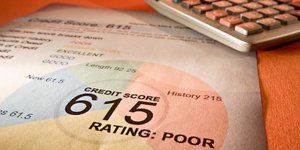 Today’s top story: Is better credit worth exposing your banking data? Also in the news: The average 401(k) balance by age, 8 common and costly homebuying myths, and why debt collectors may soon be able to text you.
Today’s top story: Is better credit worth exposing your banking data? Also in the news: The average 401(k) balance by age, 8 common and costly homebuying myths, and why debt collectors may soon be able to text you.
Is Better Credit Worth Exposing Your Bank Data?
Other ways to build credit.
The average 401(k) balance by age
Balances typically increase as you age.
8 Common and Costly Homebuying Myths
Don’t get trapped.
Why Debt Collectors May Soon Be Able to Text You
And email you.
 Today’s top story: Why buying an energy-efficient home is a financially bright idea. Also in the news: Calling your credit card issuer for a favor, a new bundle of tax hassles for Harry and Meghan, and how to see beyond the “money fog.”
Today’s top story: Why buying an energy-efficient home is a financially bright idea. Also in the news: Calling your credit card issuer for a favor, a new bundle of tax hassles for Harry and Meghan, and how to see beyond the “money fog.” Today’s top story: Make a home down payment without wrecking your finances. Also in the news: What could happen to your credit score when you close accounts, how to sidestep the potential pitfalls of travel credit cards, and why most teens don’t believe they’ll be financially independent from their parents by age 30.
Today’s top story: Make a home down payment without wrecking your finances. Also in the news: What could happen to your credit score when you close accounts, how to sidestep the potential pitfalls of travel credit cards, and why most teens don’t believe they’ll be financially independent from their parents by age 30.